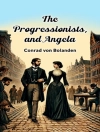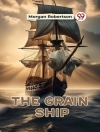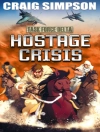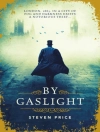This is a book of stories about small boys. It is about how they thought and what they did in a small West Indian town in the period round about the early 1950s. The boys are affected by the creatures among which they live: their parents, other adults, the neighbourhood dogs, and a girl or two. Mainly, it is an insight into how small boys interpreted and understood what the little world around them meant and how to adjust to the new words that they seemed to hear or read each day. The reader will understand and be sympathetic to some of the boys definitions of thingsdefinitions with which a good dictionary might not concur.
Various interesting adults revolve around the group of boys and educate them from time to time, sometimes deliberately and sometimes by accident. Sometimes the education is of the mainstream type, and at other times it is particularly home grown. But in every case it is properly cultural and pragmatic.
Some of the characters of note are Pop, an uncle of the narrator and an adult who totally understood the minds of small boys, never having entirely grown up himself; Ridsdale, the organizer; Larry, the wise; James, the unfortunate; Guava, the grouch; and Calvin the little know-it-all whose mother had sent him to a private school.
And we are not likely ever to forget Alice-Maud.
There is no grief or tragedy or vile corruption within these pages. The reader should relax and bear in mind that the boys will not die from the mistakes and misunderstandings that they collide with. They are going to grow up and be wiser, and some will possibly become quite important men. But for the moment they are just boys.
عن المؤلف
Ian Hodge is a musician with a first degree in music education and a master’s degree in music and liturgy. Before going entirely into music, he was a public servant for thirty-one years in the Caribbean country of St. Kitts and Nevis, where he served in several areas including home affairs, education, police, health, and defense.
As an only child for the first ten years of his life, he took to reading the many interesting books that lined the ledges of the rooms in his parents’ semi-isolated home at Limekiln and was influenced, first, by the English writers of schoolboy fiction. He read many of the Biggles, Jennings, and William series of books, having graduated from Enid Blyton’s Famous Five series.
His introduction to Caribbean writing was at the hands of Ms. Aimee Dinzey, a local beauty salon proprietor who was also a talented artist and who sometimes wrote amusing short stories in Kittitian dialect. Later, he came to know of Trinidadian author Sam Selvon and Barbadian George Lamming among others. But the greatest influence on him and the inspiration to write his own stories came from two of the books of V. S. Naipaul: Miguel Street and A House for Mr. Biswas.
He began to write stories in the late 1960s and has only now resolved to publish some of them.
The stories included in this book are all concerned with the same group of fictional characters who lived in the same neighborhood of the little capital town of Basseterre in St. Kitts during the period immediately following the Second World War.












